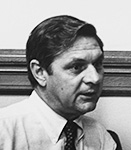Ross Pritchard, former Peace Corps official, dies at 95 (Turkey)
by Bill Bowden
Arkansas Democrat Gazette
•
Touring the backcountry of Turkey, a Peace Corps group came upon a man with a dancing bear. “This is our newest Volunteer,” Ross Pritchard told Sargent Shriver. Then Pritchard made up a name for the bear.
“Daddy had a wicked sense of humor,” said Irene Pritchard.
Ross Joseph Pritchard, 95, of Fayetteville died Wednesday after a battle with Alzheimer’s disease.
The bear incident took place in 1964, when Pritchard was the Peace Corps’ representative in Turkey and Shriver was the organization’s first director.
Pritchard was born Sept. 3, 1924, in Paterson, N.J.
At the age of 17, he enlisted in the Navy to fight in World War II.
While Pritchard was playing football during officer candidate school, Coach George Cole told him that he should enroll in the University of Arkansas, Fayetteville after his discharge and play for the Razorbacks.
So he did.
In Fayetteville, Pritchard met Emily Gregg. They were married in 1948, and they had seven children, two of whom were adopted in Iran while he was the Peace Corps representative there.
Pritchard earned bachelor’s and master’s degrees in political science and history from UA. Besides football, he also ran track for four years at UA.
In 1949, he was drafted to play professional football for the Washington Redskins, but — at 5-foot-11-inches and 160 pounds — he decided to go to the Tufts University Fletcher School of Law and Diplomacy instead. While there, he received another master’s degree and a doctorate in international economics.
Pritchard joined the faculty of Southwestern College at Memphis, where he taught and coached football.
While in Memphis, Pritchard also ran unsuccessfully for Congress. He had to quit his job at Southwestern to run for the office.
In 1962, President John F. Kennedy was looking for talent to run his new Peace Corps, former Gov. Mike Beebe said in a video interview for the Pryor Center for Arkansas Oral and Visual History.
“Somebody had identified Ross Pritchard as somebody they wanted on the ground floor, high up … and Ross would have nothing to do with it,” Beebe said. “He was disillusioned with politics and didn’t want to listen to them.”
After a speech in Nashville, Tenn., Kennedy had Air Force One land in Memphis so he could speak to the Pritchards. Many dignitaries were also there to greet Kennedy.
“The president of the United States bounds off Air Force One, passes everybody in the lineup, walks right up to Emily Pritchard, who he has never seen in his life, grabs her hand and says, ‘Dear Emily, I do hope you will change your mind and join us in the Peace Corps,'” Beebe said.
“Well, of course, it was over,” Beebe said. “They immediately accepted the offer. He went on to be the deputy director for the Middle East for the Peace Corps. … Ran the Peace Corps for probably a sixth of the world.”
Irene Pritchard said her father served in the Peace Corps in Turkey from 1963-65, then was regional director of the Peace Corps in East Asia and the Pacific until 1968.
Ross Pritchard left the Peace Corps to work for a firm in Iran that built dams and hydroelectric plants.

Ross Prichard – pres. Hood College, 1972-75
In 1972, he became president of Hood College, a private women’s liberal arts school in Maryland.
In 1975, Pritchard was hired to be president of Arkansas State University.
From 1978-84, he was chancellor at the University of Denver.
The Pritchards then moved back to Fayetteville and renovated the Lafayette Gregg house. The couple got divorced soon afterward. Ross Pritchard was married two more times.
Irene Pritchard said her father moved again to Memphis in 1997 and worked part-time in fundraising for nonprofits. He returned to Fayetteville in 2010 and remained there until his death.
I knew Ross Pritchard at the Peace Corps Headquarters in the mid-60’s when he along with Warren Wiggins, Charlie Houston, Nan McCevoy, Charlie Peters. C. Payne Lucas, Frank Mankieweiz and Bob Steiner were thee senior staff driving Shriver’s Peace Corps vision forward. To this 25 year old India RPCV Minnesota farm boy, Ross and these others were like the pantheon of Peace Corps gods, who had made great things happen in countries around the world, were full of vision and inspiring ideas, good to the junior staff, full of humor and terrific program policy debaters. Ross was one of the foundation builders for a terrific concept, this Peace Corps idea. john Chromy RPCV India III (1963-65)